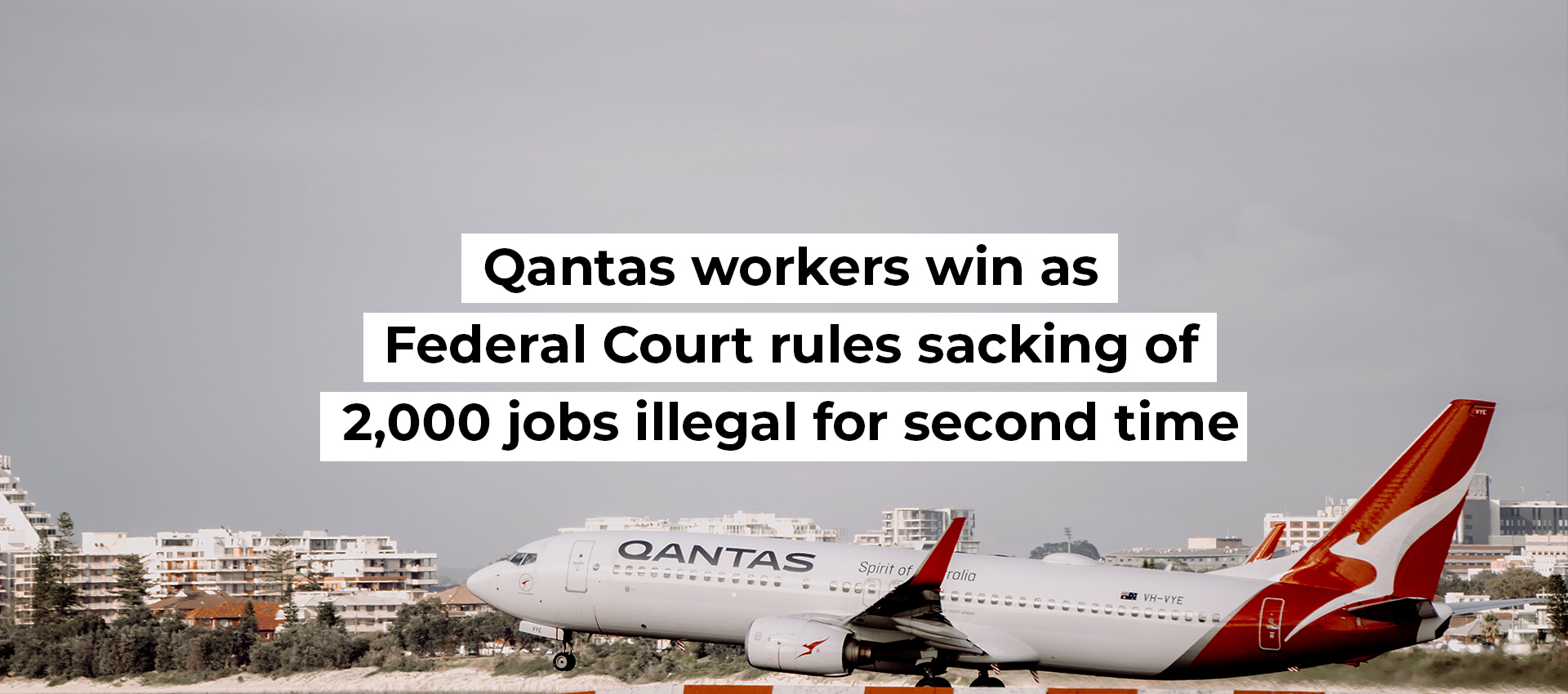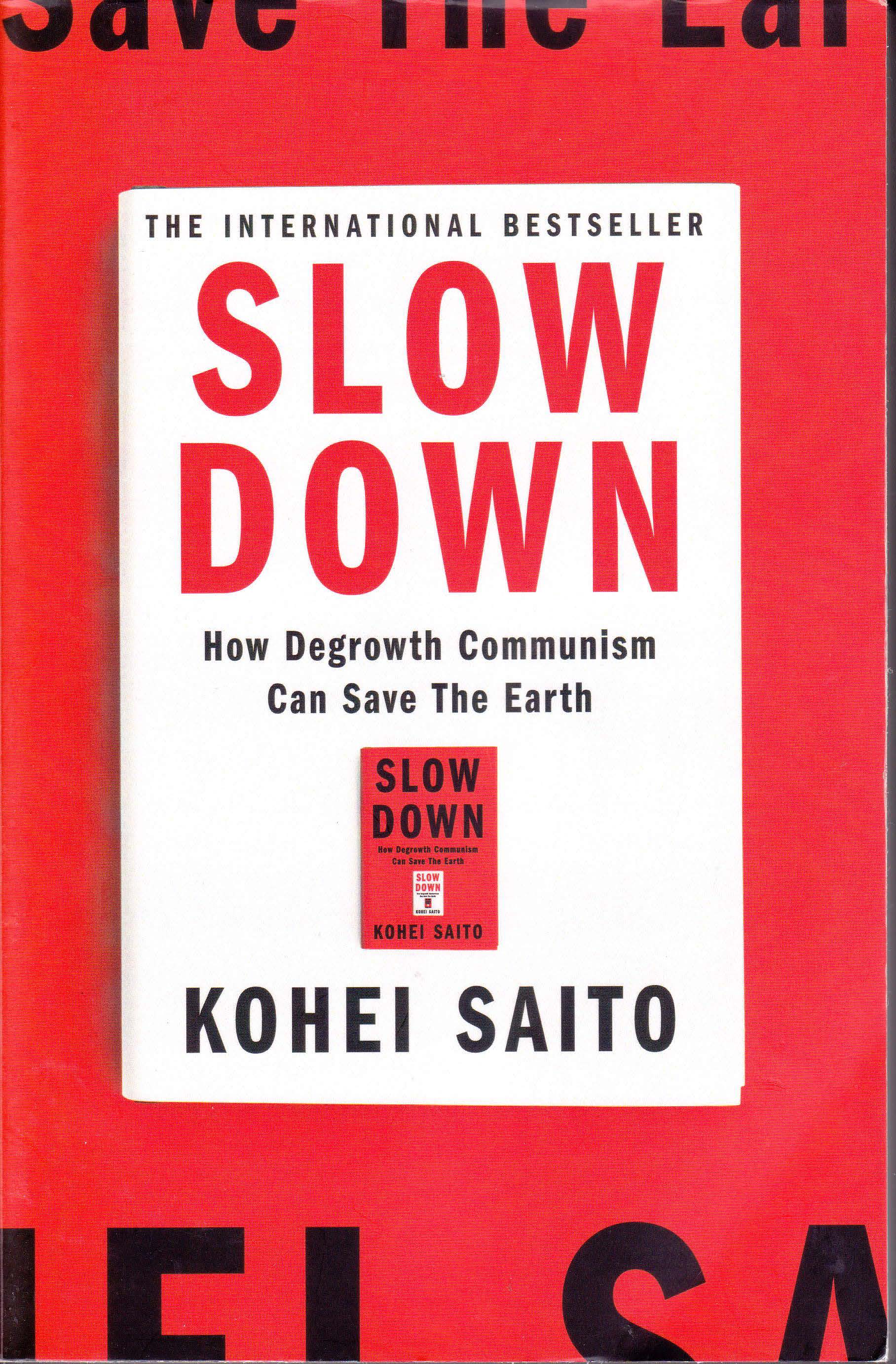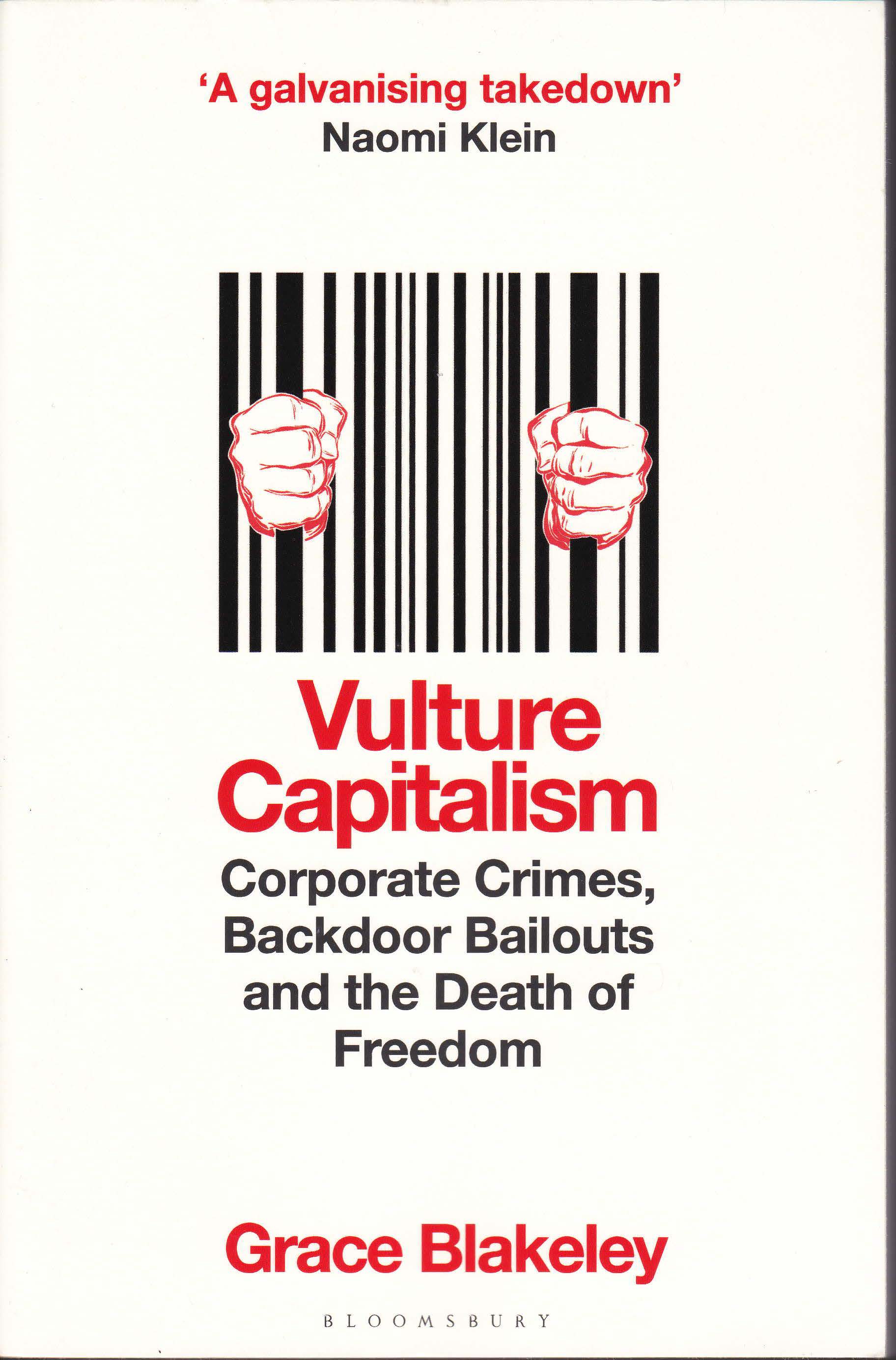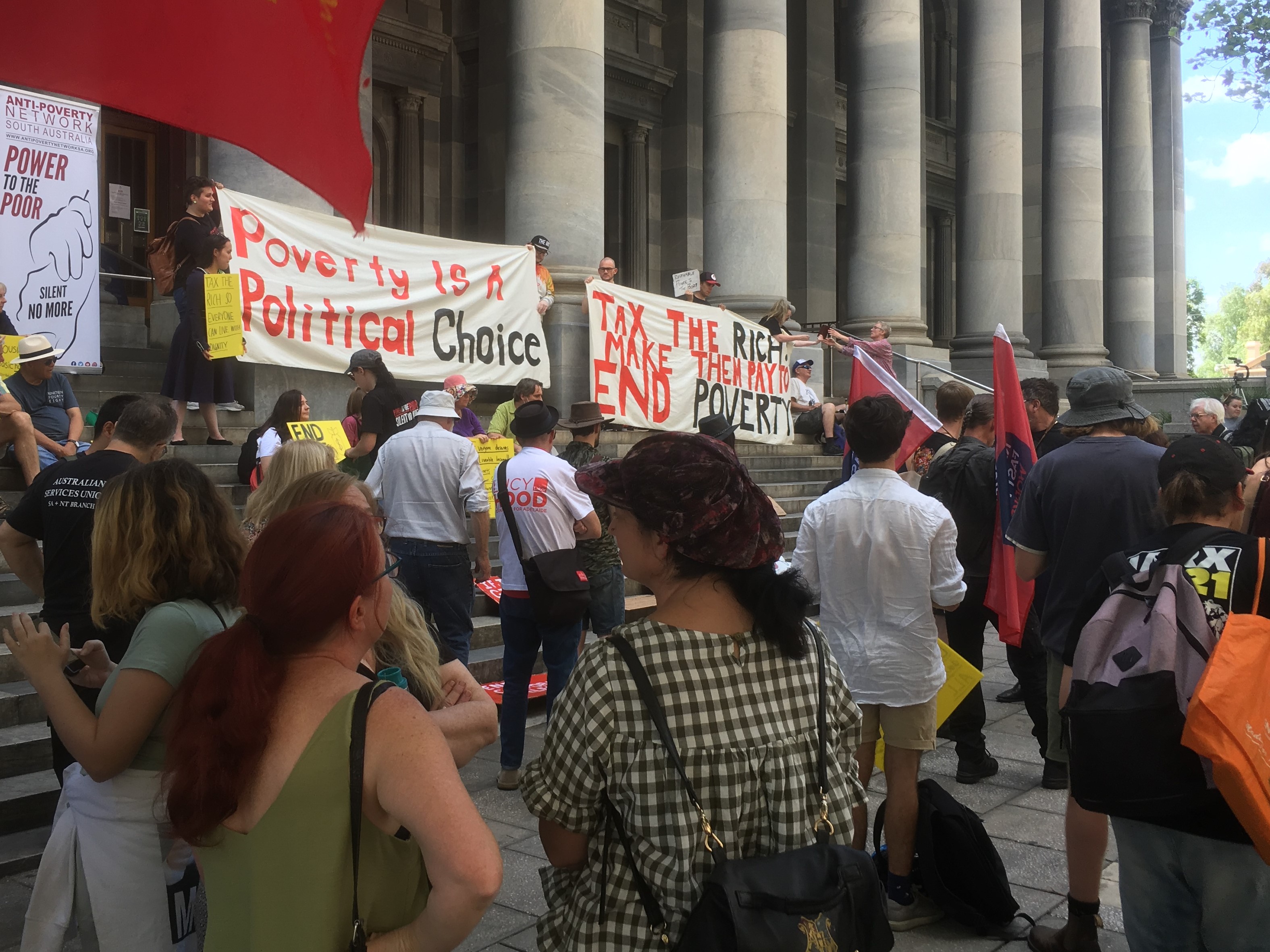Written by: (Contributed) on 24 April 2024
(Above: The designers of this Mambo t-shirt understood the link)
Commentary from right-wing economic figures about the failure of globalisation to provide sustainable growth have revealed their sense of denial about the main cause of the problem.
Their failure to also provide a satisfactory explanation for the increasingly dysfunctional state of economic affairs has provided further insights into their peculiar mind-sets.
A serious of pronouncements from two right-wing figures with links to the Productivity Commission have revealed just how out-of-step they are with reliable economic criteria; their continued pushing of an economic rationalist agenda has been shown to not produce sustainability or growth. In fact, a recent IMF report has shown the advanced economies hover at below two per cent growth rates, with little sign of an upturn. (1)
Longer term projections have also shown a steady decline of GDP from the time of the global financial crisis in 2008 to a projection it will sink to zero toward the end of the present decade. (2)
It is, however, the pronouncements of those guiding or commenting of government policy which require scrutiny.
Michael Brennan, former head of the Productivity Commission, for example, has drawn attention to 'three decades of uninterrupted growth which followed the early 1990s recession'; it is not supported with reliable economic criteria or statistics. (3) The Commission is an official Australian government body, nevertheless, with extensive glitzy websites which have advisory capacities. It would appear to be truly stacked with right-wing coalition supporters and others of a similar ilk.
The present economic debate has become increasingly focussed upon levels of government intervention to provide stable growth and a political division between those who continue to support economic rationalism and those who question its prolonged use.
The general implementation of economic rationalism grew out of right-wing think-tanks during the early 1980s which influenced international financial institutions controlled by the US and Wall Street. Earlier, the Chilean military coup in 1973, had established a test-tube for those linked to the Chicago School of Economics which had quietly pushed economic rationalism for decades, behind the scenes inside the corridors of power.
Economic rationalism was, however, only part of a much bigger picture to place the US at the centre of the global economy.
Submitting as report to US Congress on 21 July 1994 about the so-called New World Order, then President Clinton defined the three main elements of security policy: to enhance security by maintaining a strong defence capability and promoting co-operative security measures; to open foreign markets and spur economic growth; and to promote US-style democracy overseas.
The outcome was the wholesale implementation of economic rationalist policies which included three elements: de-regulation, privatisation, liberalisation.
Economic rationalism has been economic vogue thinking for nearly half a century; the present state of affairs has been the readily observable outcome. The floods of finance capital flung to the four corners of the globe has produced dysfunctional economies often leading to political instability and crisis. The vision of those in control of international financial institutions was akin to that of a casino, where risk-taking was commonplace. It also created the conditions for a drastically reduced manufacturing base in Australia, which subsequently led to revised GDP totals in an ever downward spiral.
An eighteen-month study conducted by the US National Security Council using independent economists found it unlikely globalisation 'would lead to general well-being … because the gap between rich and poor – both between countries and within them – is growing'. (4) The study, conducted around the start of the present century, was subsequently leaked to a Spanish language media outlet, although never publicised in English language outlets and was allowed to remain relatively hidden, for obvious reasons.
The distribution of income from globalisation remains noteworthy; in fact, it can be successfully argued economic rationalism was never intended to provide a sustainable model, only to enrich the already rich and powerful. It was a means to reduce the bargaining power of labour and hinder their political opposition in favour of the business-classes and their cronies overseas, thereby strengthening traditional class and state power.
Early studies of the model showed the income of the advanced countries rose from eleven times greater than the developing world, to 23 times larger by 2000. (5) Economic rationalism can therefore best be viewed as a form of neo-colonialism. Within countries the rapid emergence of billionaires has been well recorded. (6) The manner in which such people flout their wealth on the Forbes websites while paying their workforces well below CPI and inflation rates reveal a great deal about their mind-sets and limited vision of the world. They reside in a parallel world, devoid of the working-class. The fact the latter produce the wealth and the former acquire it, is an issue they never address.
Recent studies of the Australian economy have revealed massive differences between rich and poor. Average wealth of the top ten per cent of the population have recorded faster growth rates than the lowest sixty per cent since 2003. (7) The wealth of the top ten per cent also soared 84 per cent, from $2.8 million to $5.2 million, whereas the lowest sixty per cent only rose 55 per cent, from $220,000 to $343,000. (8) The poorest twenty per cent of Australians had a recorded average wealth of just $41,000, which is only seventeen per cent higher than it was in 2003. (9)
It was noted from a study conducted by the University of NSW and the Australian Council of Social Service that the average housing wealth for those in the lowest twenty per cent of the Australian population was zero. (10)
The wealth gap, for those under 35 years of age, is even more startling; it recorded the lowest sixty per cent accruing an increase in their wealth rising by only 39 per cent, from $68,000 in 2003 to $80,000 in 2022, while the highest ten per cent rose 126 per cent in the same period, from $928,000 to $2 million. (11)
Despite the spurious motives for retaining economic rationalism, it can clearly be established to not have produced sustainable growth anywhere, or a betterment of life-styles
for the vast majority of people.
When challenged, however, right-wing economists continue to defend the model although they are inclined to offer furphies as additional factors. Those linked to the Productivity Commission, for example, have drawn attention to the failure of Australian entrepreneurs to register patents. Stating Australia is 'among the least innovative economies in the world', a report has recorded under ten per cent of registered patents are Australian-based as opposed to the US where more than seventy per cent are used by US businesses. (12)
The report does not refer to the fact that Australia only contributes 1.67 per cent of global GDP, whereas the US has a 25.3 per cent standing. (13)
Criticism from the Productivity Commission about recent government grants to support Australian manufacturing, likewise, has been revealing, with statements issued which have included reference to 'a return to old think industry protectionism', and not establishing a revival of a strong manufacturing base. (14)
The fact their economic model of choice has proved dysfunctional and created a state of affairs whereby an IMF projection for Australia's GDP being only 1.5 per cent this year, possibly increasing to two per cent in 2025, has, likewise, been conveniently ignored.
The Productivity Commission and those linked to the organisation can best be regarded as benefiting from economic rationalism and therefore have no reason to change the model; they are quite content to languish in economic mediocrity.
1. IMF warns on 'stalling' progress to reduce inflation, Australian, 17 April 2024.
2. Economic decline, 'Goodbye good times, hello reality', Australian, 11 April 2024.
3. Ibid.
4. Hunger does not subside and slavery returns, Granma International (Havana), 24 June 2001.
5. How globalisation fuels poverty, Socialist Campaign Group News (Westminster, London), July 2005.
6. See: Survival of the Richest, OXFAM Report, 2000.
7. 'Disturbing' gap between haves and have nots, The New Daily, 18 April 2024.
8. Ibid.
9. Australian, op.cit., 11 April 2024.
10 Bonanza for rich leaves poor in their wake, Australian, 18 April 2024.
11. Ibid.
12. Ibid.
13. World GDP, World Bank, 25 July 2023.
14. Australian, op.cit., 11 April.








